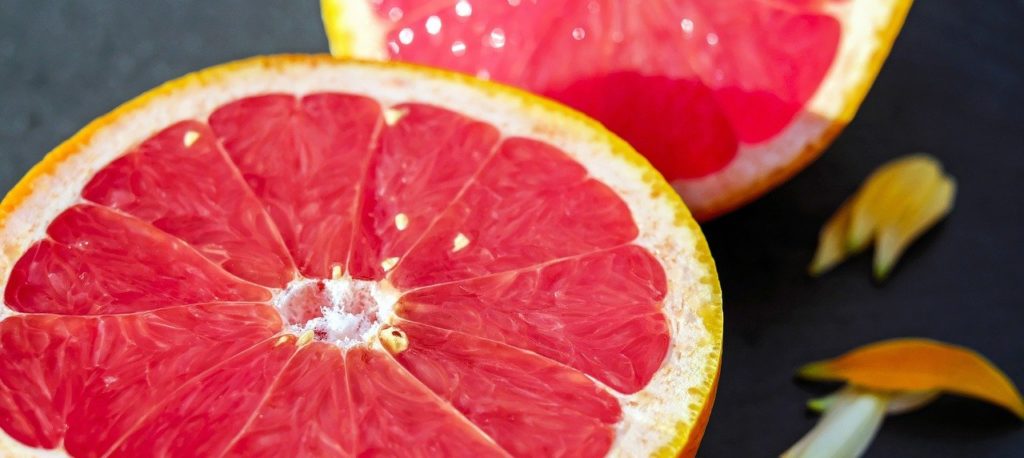In one of my course, I raise the issue of eating grapefruit in Sweden. When I put the course together, I wasn’t reading too much controversy into that issue because it was so clear to me: grapefruit is not native to Sweden and it needs to be imported and therefore causes a lot of emissions and potentially even a water loss in the country it grows. For me, that chain of reasoning was obvious and against eating grapefruit. But then I had a conversation with a student of the course who raised another issue: if I don’t consume grapefruit in Sweden, the grower wouldn’t have an income from selling the fruit. By denying his/her product, I’m contributing to the financial constraints in the grower’s household. Her thoughts and resulting actions diverted far from my own.
I have to admit I hadn’t thought of her line of arguments before. Or better yet, I had applied my very own view of the world to the question about a fruit. And the student had done the same from her perspective. We both approached grapefruit from completely different sides, arrived at different conclusions and resulting actions.
And these conclusions will lead us to different actions because what applies to a small fruit can scale up to a much larger conversation. Climate change evokes very different emotions in all of us. Some look for rational arguments about its existence, some feel confronted by it and see their life’s work in danger, some fear the future and what it means to prepare for a changing world, and others move to a place of hope that salvation will come. We each have our own way of dealing with climate change and there is no right or wrong. It’s the step that follows the initial reaction to change that defines us – the decision to act or not to act.
Actions First
We apply a thought process to every action and inaction in our life. Maybe climate change evokes feelings of powerlessness in you. These feelings can lead you to throw your hands in the air, literally or figuratively, and retreat to a safe place you feel powerful in. This sense of powerlessness, however, has very little to do with climate change itself but with your perception of the world and yourself in it.
Often we react to the world with very little thought. We eat, drink, sleep when it seems necessary but not necessarily because we consciously think about what those actions mean for our bodies. We check our phones every few minutes to see if any new messages have arrived. You can call it habit or life-sustaining. The truth remains that most of our actions don’t result from a thorough thought process.
In a conversation around climate change, this thoughtless attitude towards action can leave us scrambling for reality. We are told what we should do repeatedly but the translation of those should’s for our lives is missing. Following the latest social media trend on decluttering and strawless drinks is an action that might look nice but it barely scratches the surface of the problem.
The solution lies much deeper.
Differences
We are all different. We approach life and its challenges from very different angles and with very different thoughts. Just like the student of my course and I disagree on the issue of grapefruit, we rarely agree on solutions globally. We have unique experiences and different (perceived) needs. Whatever fits in one life might not fit into another.
And that is where an inner monologue about our habits must come in. Why do we see only that one solution to our individual problems?
I only saw the one logical conclusion from grapefruit in a Swedish supermarket which was that I don’t want to buy it. My internal thought process went to global trade, emissions, and water resources. And those thoughts really only left me with one choice in my action: don’t buy it.
But the reality is more complicated than that. I don’t have to arrive at the conclusion I see as foregone. It is my personal history, experiences, and knowledge that shape the way I respond to that question. However, that is not the end of the story. And it shouldn’t be the end of the story for me either.
By understanding that we each approach the world differently, run unique thought processes, and arrive at different conclusions makes life interesting. If it wasn’t for my conversation around grapefruit, I wouldn’t have contemplated how I reached my conclusion. So, it’s good to share ideas and analyse how we got to those ideas in the first place.
Experiment
Think of a recent conclusion you’ve reached. It can be something really simple, like why you chose to read a particular book or article. And now consider how you got to the conclusion that the book or article would be of interest to you. What were the contributing factors to your decision? What part of your personal history and experiences played into getting to that point?
Your decision might not change, but it’s insightful to see how you reached them.

